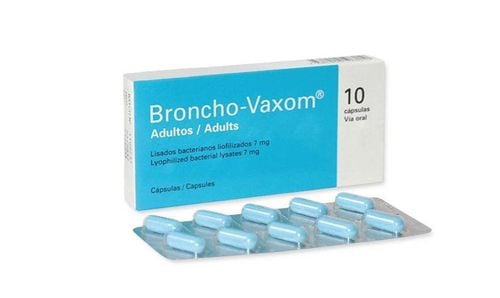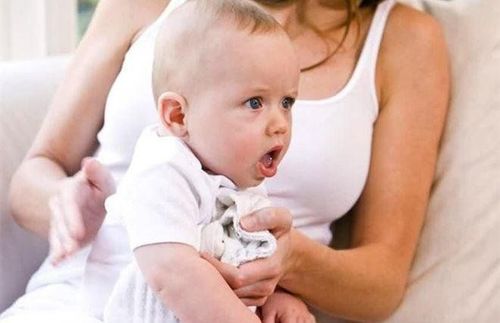This is an automatically translated article.
The article was professionally consulted with Specialist Doctor I Bui Thi Ha - Pediatrician - Neonatologist - Department of Pediatrics - Neonatology - Vinmec Ha Long International General Hospital.The initial presentation of pneumonia in infants and children is very similar to that of other respiratory infections. If not detected early and treated promptly, children with severe pneumonia can lead to serious complications, high risk of death.
1. What are the symptoms of children with severe pneumonia?
Most pneumonia in older children usually begins with fever, cough, and upper respiratory tract infection (acute nasopharyngitis). More severe pneumonia may be accompanied by shortness of breath, profuse sweating, chills, exhaustion, and poor feeding. Pneumonia in infants and young children may or may not be accompanied by fever, even hypothermia, the infant refuses to breastfeed and often rapidly progresses to respiratory failure.
Children with severe pneumonia often have the following symptoms:
Children with shortness of breath, rapid breathing, fluctuating by age: Under 2 months: ≥ 60 beats/min, from 2 to 12 months: ≥ 50 beats/min , from 1 to 5 years old: ≥ 40 beats/min and over 5 years old: ≥ 30 beats/min. Especially, when the baby has serious symptoms such as: cyanosis, inability to drink water, lethargy, difficulty in waking, exhaustion, convulsions, severe malnutrition, rising and falling of the nostrils, signs of muscle contractions ribs, the ribcage retracts on inspiration (instead of the usual bulge). At this time, the child is at risk of falling into acute respiratory failure and can lead to death if not detected and treated promptly. Children under 5 years old, especially children under 2 months old, are the group at highest risk of severe pneumonia and death from pneumonia.

2. Dangerous complications when children have severe pneumonia
Pneumonia in children progresses from mild to severe, but the initial presentation of the disease is often very similar to that of other respiratory infections. If not treated promptly, children with severe pneumonia can experience serious complications such as:
Sepsis: A condition that occurs when bacteria that cause pneumonia enter the circulatory system, causing pneumonia. sepsis and shock due to infectious complications. This case is very difficult to treat, seriously affecting the health of the child and the risk of death. Emphysema: The accumulation of pus in the pleural cavity causes difficulty in breathing. Meningitis: Caused by the virus spreading, infecting the tissues around the brain and spinal cord, leading to permanent brain damage, neurological disorders, life-threatening to the baby. Acute respiratory distress syndrome: Severe pneumonia causing lung abscess, chronic pneumonia, weakened immune system of children. Pericardial effusion, heart failure: If not treated promptly, neonatal pneumonia can directly affect the circulatory system, leading to pericardial effusion, enlarged heart, and even heart failure. . Other complications, including: endocarditis, peritonitis, arthritis,...

3. Pneumonia in infants when to be hospitalized?
Most neonatal pneumonia has a poor prognosis and can be fatal, so if you suspect your child is at risk for pneumonia, take him or her to see a pediatrician right away. . Call 911 for prompt help if you notice that your baby has one of the following symptoms: Stopping of breathing, pale, pale skin, very rapid breathing, groaning, exhaustion, the child has to work very hard to breathe. .
For children with severe pneumonia or at a young age, they need to be hospitalized for treatment. Cases requiring hospitalization include:
Children under 3 months of age with symptoms of pneumonia. Children over 3 months with pneumonia, signs of high fever over 38.5 degrees C. Children with moderate to severe respiratory failure, average breathing rate is over 70 times for children under 1 year old, over 50 times for children under 1 year old. In older children, accompanied by chest constriction, severe shortness of breath, groaning, rising and falling nostrils, apnea, pale skin, lethargy, refusal to suckle, signs of severe dehydration. To prevent pneumonia in infants, in addition to vaccinating children, parents need to take additional measures to prevent the spread of bacteria and respiratory viruses in general, such as washing hands before and After eating, avoid close contact with other children, do not share eating utensils with sick children.
Currently, the Pediatrics Department at Vinmec International General Hospital is trusted by many parents to examine the diseases that infants and young children are susceptible to. Vinmec brings satisfaction to customers and is highly appreciated by industry experts by:
Gathering a team of leading pediatricians: including leading experts with high professional qualifications ( professor, associate professor, doctorate, master), experienced, worked at major hospitals such as Bach Mai, 108.. The doctors are well-trained, professional, have a heart - a vision. Understanding young psychology. In addition to domestic pediatric specialists, the Department of Pediatrics also has the participation of foreign experts (Japan, Singapore, Australia, USA) who are always pioneers in applying the latest and most effective treatment regimens. . Comprehensive services: In the field of Pediatrics, Vinmec provides a series of continuous medical examination and treatment services from Newborn to Pediatric and Vaccine,... according to international standards to help parents take care of their baby's health from birth to childhood. Advanced techniques: Vinmec has successfully deployed many specialized techniques to make the treatment of difficult diseases in Pediatrics more effective: neurosurgery - skull surgery, stem cell transplantation blood in cancer treatment. Professional care: In addition to understanding children's psychology, Vinmec also pays special attention to the children's play space, helping them to play comfortably and get used to the hospital's environment, cooperate in treatment, improve the efficiency of medical treatment.
Please dial HOTLINE for more information or register for an appointment HERE. Download MyVinmec app to make appointments faster and to manage your bookings easily.














